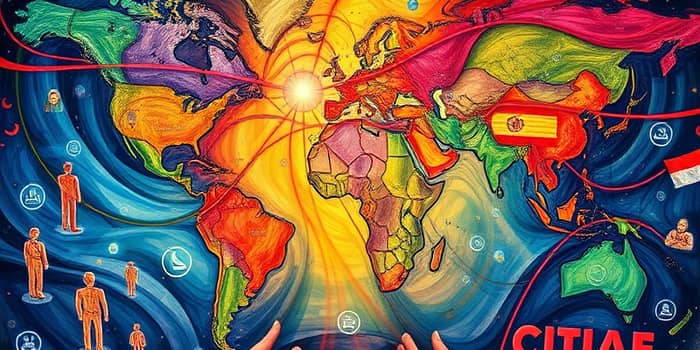
In the ever-shifting terrain of 2025, influence is both currency and compass. From Beijing to New Delhi, from Silicon Valley to Brussels, the rules of engagement are being rewritten. Stakeholders—governments, corporations, advocacy groups, and citizens—must navigate a landscape where alliances form and dissolve at unprecedented speed, where narratives can shift public opinion overnight.
This playbook offers an in-depth exploration of trends, data, and strategies essential for anyone seeking to understand or shape the global influence market. Whether you are a political strategist, an investor, or an engaged citizen, the insights here will empower you to act with foresight and resilience.
As the world transitions to a multipolar system with rising global powers, traditional hierarchies are giving way to more complex networks of influence. China and India stake their claims alongside the United States, while the European Union redefines its role amid internal debates.
Nonstate entities—corporations wielding vast data resources, religious movements with global followings, and criminal networks exploiting digital loopholes—exert pressure far beyond their conventional domains. This dispersion of power demands a new framework for analysis and action.
Regionalism is on the rise. In Latin America, ASEAN, and Africa’s Continental Free Trade Area, states pursue tailored models of governance and cooperation. The idea of a monolithic “international community” has fractured into a mosaic of competing blocs and bilateral accords.
The global political organizations market was valued at $4.28 billion in 2024 and is projected to grow to $4.41 billion in 2025, reflecting a robust CAGR of 2.9%. By 2029, analysts estimate the market could reach $4.93 billion. This growth is fueled by intensified campaigning, expanding digital outreach, and heightened regulatory scrutiny.
Key activities span:
Future trends underscore the importance of digital voter engagement platforms and strategies, crisis communication frameworks, and a commitment to inclusion and diversity in candidate selection. Regulatory changes and global events—trade disputes, public health challenges, and climate emergencies—will continue to reshape budgets and priorities.
A nuanced understanding of policy trajectories is critical for forecasting shifts in public sentiment and market stability. Below is an overview of the principal areas demanding attention:
In an age where the post-truth era of political discourse prevails, disinformation has become a strategic tool. Actors exploit emotional triggers, crafting narratives that resonate regardless of factual accuracy.
Countering this trend requires more than fact-based rebuttals. Successful interventions blend narrative appeals, community-driven fact-checking, and algorithmic adjustments by digital platforms. These measures, however, are resource-intensive and must be tailored to specific demographic and cultural profiles.
Cybersecurity has vaulted to the forefront of electoral integrity. Protecting voting infrastructure from interference, securing campaign communications, and defending data repositories are non-negotiable mandates for modern political operations.
Political polarization has real-world consequences. In the United States, about 40% of citizens are considering relocating in 2025, driven by ideological divides and regional policy variations. This exodus has ripple effects on housing, labor markets, and community cohesion.
Investor sentiment also reacts swiftly to political outcomes. Following the 2024 election, U.S. stock market wealth surged by $5 trillion between July and December, reflecting renewed optimism but also heightened volatility as markets calibrate to evolving policy signals.
To thrive in this dynamic environment, organizations and individuals must:
By embracing a holistic approach—integrating technology, storytelling, and rigorous data analysis—stakeholders can navigate uncertainty and seize opportunities in the influence market.
As the global order reshapes itself, those equipped with insight and foresight will set the agenda, not just react to it. This playbook is your guide to mastering the evolving art of influence in 2025 and beyond.
References













